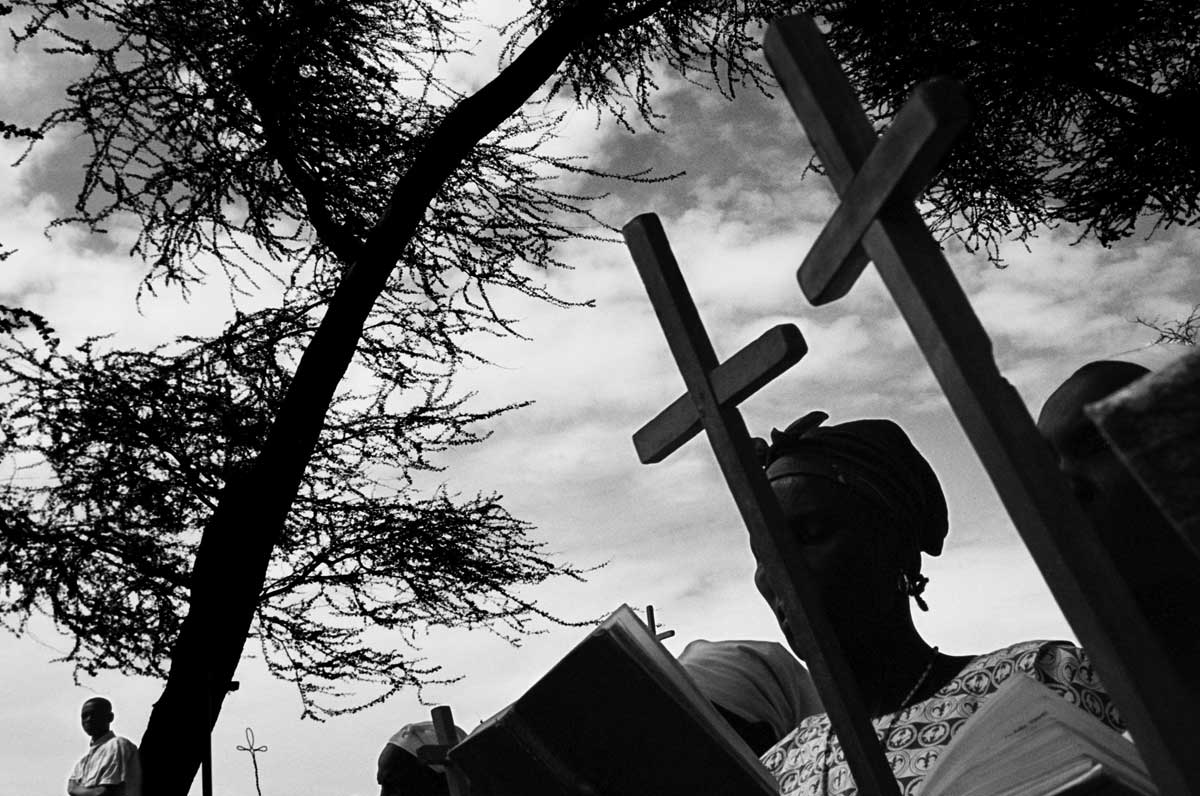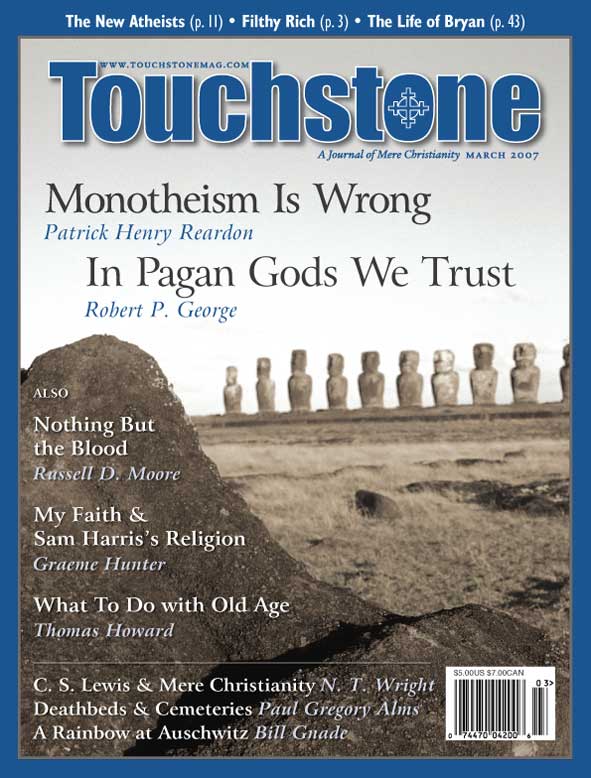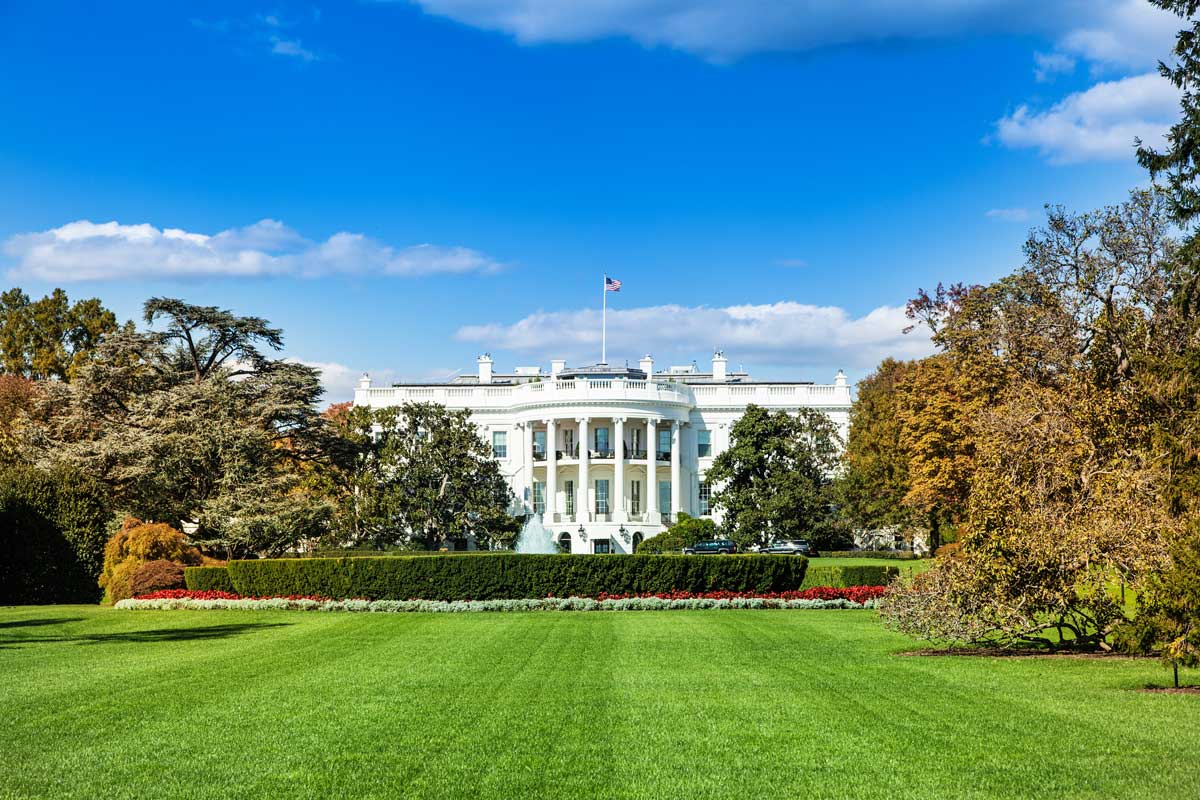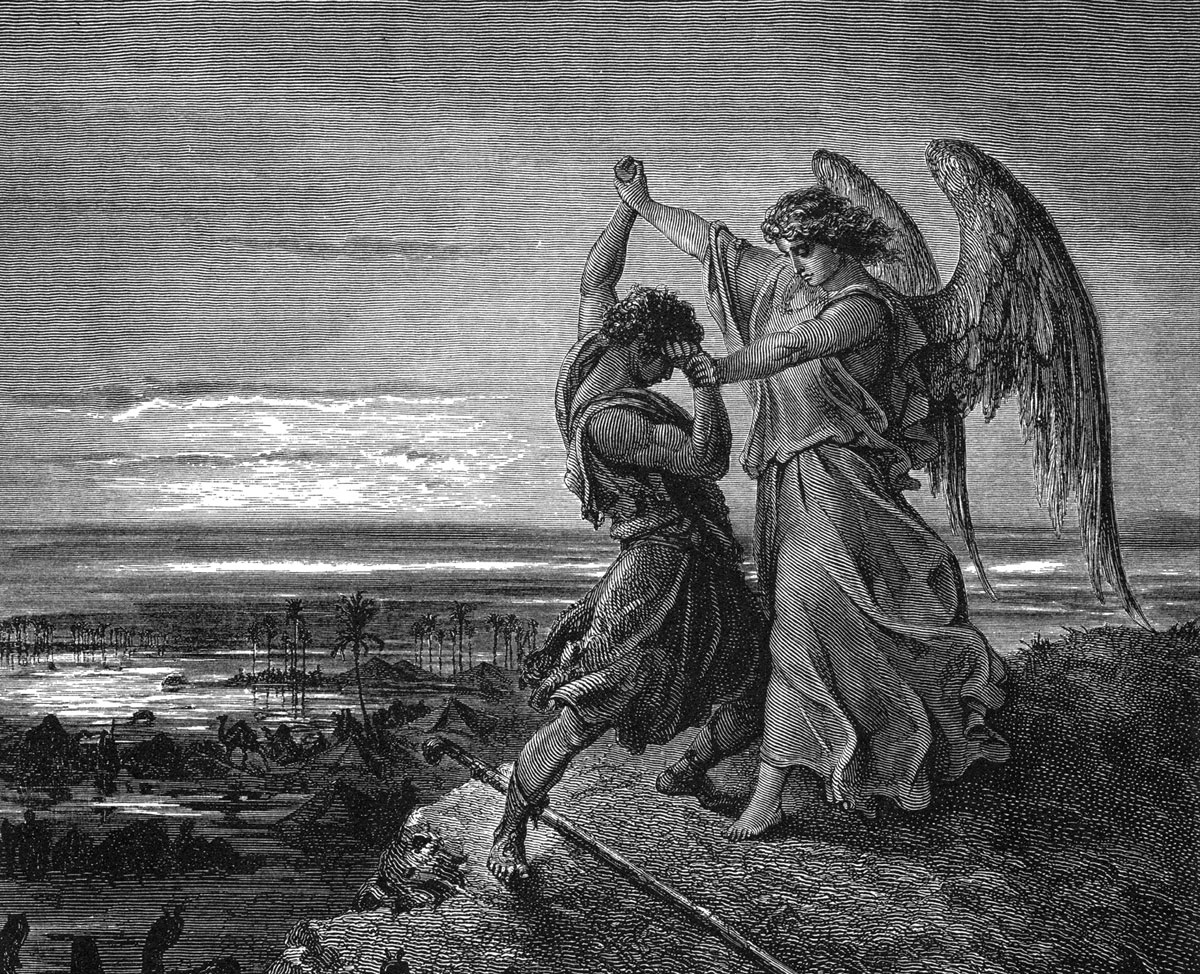Secular Saviors
Earthly Powers: The Clash of Religion and Politics in Europe from the French
Revolution to the Great War
by Michael Burleigh
HarperCollins, 2005
(530 pages, $29.95, hardcover)
reviewed by Peter J. Leithart
For millennia, human beings confused religion with politics, and some benighted souls still do. We moderns know better. It’s ironic that it took an unbelieving age to figure out what religion is, but, as the bumper sticker doesn’t say, ironies happen.
We know now that religion is spiritual. We’ve got it figured out. We’ve bottled up the spirit and found a safe place for it on the shelf.
Never Modern
Only we haven’t. Religion still interferes with politics. And it isn’t just maladjusted Evangelicals and militant Islamists who revert to the premodern mixture of politics and religion. On this point as on many others, French anthropologist Bruno Latour nailed it in the title of his 1993 book, We Have Never Been Modern.
As English historian Michael Burleigh shows in Earthly Powers, the first of a two-volume history of religion and politics in the modern world, the real conflict in modern Europe is not between religion and politics, or even between church and state. The conflict is between Christianity and various kinds of political religion.
Burleigh relies on Tocqueville’s analysis of the French Revolution to set the terms of his discussion. The revolutionaries of 1789 were, Tocqueville claimed, “striving for the regeneration of the human race,” and as a result, the Revolution “took on that appearance of a religious revolution.” It was, he admitted, “a new kind of religion, an incomplete religion . . . without God, without ritual, and without life after death.” Tocqueville compared it to Islam, a religion that “flooded the earth with its soldiers, apostles, and martyrs.”
The religion of the French Revolution brooked no rivals. Catholicism was the chief rival in France, and the revolution drove 25,000–30,000 priests into exile. When the revolutionaries found they couldn’t remove the past from the people, they decided they had to remove the people themselves. The result: thousands massacred, women hanged on trees and cut in half, many subjected to patriotic “baptisms”—by being drowned in the Loire.
France set the precedent for later revolutionary movements. Only sacrifice on a massive scale could regenerate man.
Political religion made another appearance in the nationalist movements of the nineteenth century, in which the nation-state dressed itself in vestments borrowed from Christianity. The state replaced the church; sacrifice for the Fatherland replaced martyrdom; God’s election of Israel was translated into his election of Germany, or France, or whatever. In Spain, a nationalist catechism inculcated virulent hatred for France into schoolchildren.
Peter J. Leithart is an ordained minister in the Presbyterian Church in America and the president of Trinity House Institute for Biblical, Liturgical & Cultural Studies in Birmingham, Alabama. His many books include Defending Constantine (InterVarsity), Between Babel and Beast (Cascade), and, most recently, Gratitude: An Intellectual History (Baylor University Press). His weblog can be found at www.leithart.com. He is a contributing editor of Touchstone.
subscription options
Order
Print/Online Subscription

Get six issues (one year) of Touchstone PLUS full online access including pdf downloads for only $39.95. That's only $3.34 per month!
Order
Online Only
Subscription

Get a one-year full-access subscription to the Touchstone online archives for only $19.95. That's only $1.66 per month!
bulk subscriptions
Order Touchstone subscriptions in bulk and save $10 per sub! Each subscription includes 6 issues of Touchstone plus full online access to touchstonemag.com—including archives, videos, and pdf downloads of recent issues for only $29.95 each! Great for churches or study groups.
Transactions will be processed on a secure server.
more from the online archives

27.3—May/June 2014
Religious Freedom & Why It Matters
Working in the Spirit of John Leland by Robert P. George
calling all readers
Please Donate
"There are magazines worth reading but few worth saving . . . Touchstone is just such a magazine."
—Alice von Hildebrand
"Here we do not concede one square millimeter of territory to falsehood, folly, contemporary sentimentality, or fashion. We speak the truth, and let God be our judge. . . . Touchstone is the one committedly Christian conservative journal."
—Anthony Esolen, Touchstone senior editor









